Previous given answers were good but not generalizable for N dimensions.
This code is generalizable, and correct.
/*
* www.javagl.de - Utilities - Combinatorics
*
* Copyright (c) 2008-2013 Marco Hutter - http://www.javagl.de
*
* Permission is hereby granted, free of charge, to any person
* obtaining a copy of this software and associated documentation
* files (the "Software"), to deal in the Software without
* restriction, including without limitation the rights to use,
* copy, modify, merge, publish, distribute, sublicense, and/or sell
* copies of the Software, and to permit persons to whom the
* Software is furnished to do so, subject to the following
* conditions:
*
* The above copyright notice and this permission notice shall be
* included in all copies or substantial portions of the Software.
*
* THE SOFTWARE IS PROVIDED "AS IS", WITHOUT WARRANTY OF ANY KIND,
* EXPRESS OR IMPLIED, INCLUDING BUT NOT LIMITED TO THE WARRANTIES
* OF MERCHANTABILITY, FITNESS FOR A PARTICULAR PURPOSE AND
* NONINFRINGEMENT. IN NO EVENT SHALL THE AUTHORS OR COPYRIGHT
* HOLDERS BE LIABLE FOR ANY CLAIM, DAMAGES OR OTHER LIABILITY,
* WHETHER IN AN ACTION OF CONTRACT, TORT OR OTHERWISE, ARISING
* FROM, OUT OF OR IN CONNECTION WITH THE SOFTWARE OR THE USE OR
* OTHER DEALINGS IN THE SOFTWARE.
*/
package de.javagl.utils.math.combinatorics;
import java.util.ArrayList;
import java.util.Collection;
import java.util.Collections;
import java.util.Iterator;
import java.util.List;
import java.util.NoSuchElementException;
/**
* A class providing an iterator over all combinations of a certain number
* of elements, where the valid ranges may be different for each element
* of the combination. For a set S = { S0, S1, ... Sn } there will be
* |S0| * |S1| * ... * |Sn| possible combinations. Example:<br />
* <pre>
* S0 = {A,B,C}, |S0| = 3
* S1 = {D,E} , |S1| = 2
* S2 = {A,E} , |S2| = 2
* S = { S0, S1, S2 }
* m = |S0| * |S1| * |S0| = 3 * 2 * 2 = 12 combinations
*
* Combinations:
* [A, D, A]
* [A, D, E]
* [A, E, A]
* [A, E, E]
* [B, D, A]
* [B, D, E]
* [B, E, A]
* [B, E, E]
* [C, D, A]
* [C, D, E]
* [C, E, A]
* [C, E, E]
* </pre>
*
* @param <T> The type of the elements
*/
public final class MixedRangeCombinationIterable<T> implements Iterable<List<T>>
{
/**
* The input elements
*/
private List<? extends Collection<? extends T>> sets;
/**
* The total number of elements that the iterator will provide
*/
private final int numElements;
/**
* Creates an iterable over all combinations of one element
* of each of the given sets.
*
* @param sets The input sets
*/
public MixedRangeCombinationIterable(
List<? extends Collection<? extends T>> sets)
{
this.sets = sets;
int m = 0;
if (sets.size() > 0)
{
m = 1;
}
for (Collection<? extends T> set : sets)
{
m *= set.size();
}
this.numElements = m;
}
@Override
public Iterator<List<T>> iterator()
{
return new Iterator<List<T>>()
{
/**
* The element counter
*/
private int current = 0;
/**
* The current combination
*/
private List<T> currentCombination = new ArrayList<T>();
/**
* The iterators over the individual sets
*/
private List<Iterator<? extends T>> subIterators =
new ArrayList<Iterator<? extends T>>(
Collections.<Iterator<? extends T>>nCopies(
sets.size(), null));
// Initialize the sub-iterators and the first combination
{
if (numElements > 0)
{
for (int i=0; i<sets.size(); i++)
{
Iterator<? extends T> subIterator =
sets.get(i).iterator();
subIterators.set(i, subIterator);
currentCombination.add(subIterator.next());
}
}
}
@Override
public boolean hasNext()
{
return current < numElements;
}
@Override
public List<T> next()
{
if (!hasNext())
{
throw new NoSuchElementException("No more elements");
}
List<T> result = new ArrayList<T>(currentCombination);
increase(sets.size()-1);
current++;
return result;
}
/**
* Increases the selection of elements by one.
*
* @param index The index to increase
*/
private void increase(int index)
{
if (index < 0)
{
return;
}
Iterator<? extends T> subIterator = subIterators.get(index);
if (subIterator.hasNext())
{
currentCombination.set(index, subIterator.next());
}
else
{
subIterator = sets.get(index).iterator();
subIterators.set(index, subIterator);
currentCombination.set(index, subIterator.next());
increase(index-1);
}
}
@Override
public void remove()
{
throw new UnsupportedOperationException(
"May not remove elements from a combination");
}
};
}
}
A typical usage would be:
List<List<Integer>> inputs = new ArrayList<List<Integer>>();
input.add(Arrays.asList(0, 1, 2));
input.add(Arrays.asList(0, 1, 2, 3));
input.add(Arrays.asList(0, 1));
MixedRangeCombinationIterable<Integer> product =
new MixedRangeCombinationIterable(inputs)
for(List<Integer> combination: product){
System.out.println(combination)
}

